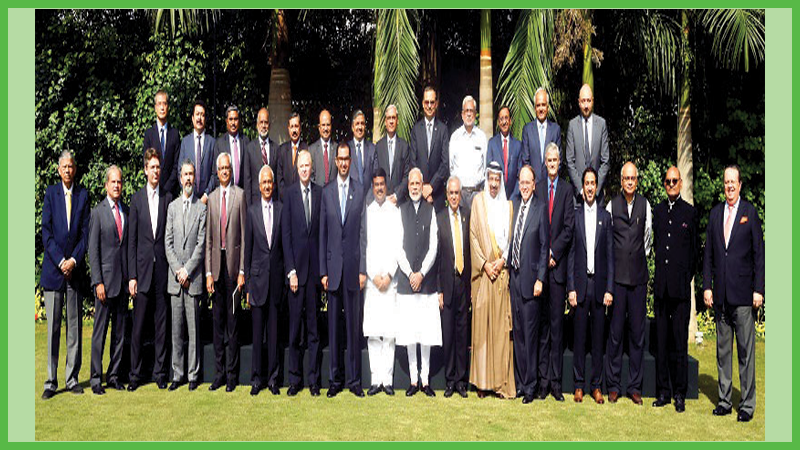In meeting, PM makes a strong case to reduce energy cost
Prime Minister Narendra Modi on October 15 met CEOs and Experts from the Oil and Gas sector, from both India and abroad. During the meeting Prime Minister Modi made a strong case for a partnership between the producers and consumers, in the oil market, as it exists in other markets. This will help stabilise the global economy which is on path of recovery.
The gathering included Ministers from Saudi Arabia and UAE, and CEOs and experts from organisations including Saudi ARAMCO, ADNOC, BP, Rosneft, IHS Markit, Pioneer Natural Resources Company, Emerson Electric Company, Tellurian, Mubadala Investment Company, Schlumberger Ltd., Wood Mackenzie, World Bank, International Energy Agency (IEA), NIPFP, Brookings India and various Indian companies involved in both upstream and downstream operations.
Union Ministers Shri Arun Jaitley and Shri Dharmendra Pradhan; Vice-Chairman NITI Aayog Dr. Rajiv Kumar and senior officials from the Union Government and NITI Aayog were also present at the interaction.
Interacting with the global leaders of the energy sector, Prime Minister highlighted the significant positioning of India in the oil and gas market. He noted that the oil market is producer driven; and both the quantity and prices are determined by the oil producing countries. Though there is enough production, the unique features of marketing in the oil sector have pushed up the oil prices. Prime Minister Modi made a strong case for a partnership between the producers and consumers, in the oil market, as it exists in other markets. This will help stabilise the global economy which is on path of recovery.
Shri Modi drew attention of the experts on certain key policy issues relevant to India. Firstly, he highlighted that the consuming countries, due to rising crude oil prices, face many other economic challenges including serious resource crunch. The cooperation of the oil producing countries would be very critical to bridge this gap. He appealed to oil producing countries to channel their investible surplus to pursue commercial exploitation in oil sector in the developing countries.
Secondly, he spoke of higher acreage under exploration and sought cooperation of the developed countries both in terms of technology and extension of coverage. Thirdly, he sought the role of private participation in the distribution of gas sector. Talking of technology, he appealed for assistance in areas where high pressure and high temperature technology applications are relevant to commercial exploitation of natural gas. Lastly and importantly, he requested for review of payment terms so as to provide temporary relief to the local currency.
Prime Minister also spoke about the various policy initiatives and developmental measures undertaken by his Government in the sector. He highlighted the liberalisation in gas pricing and marketing which has been particularly in deep waters and requiring technology for high pressure high temperature exploitation. He made a mention of open acreage licensing policy, early monetisation of coal bed methane, incentives for discovery of small fields and seismic survey at a national level. Talking of ongoing commercial exploitation, he made a special mention of extension of production sharing contracts.


